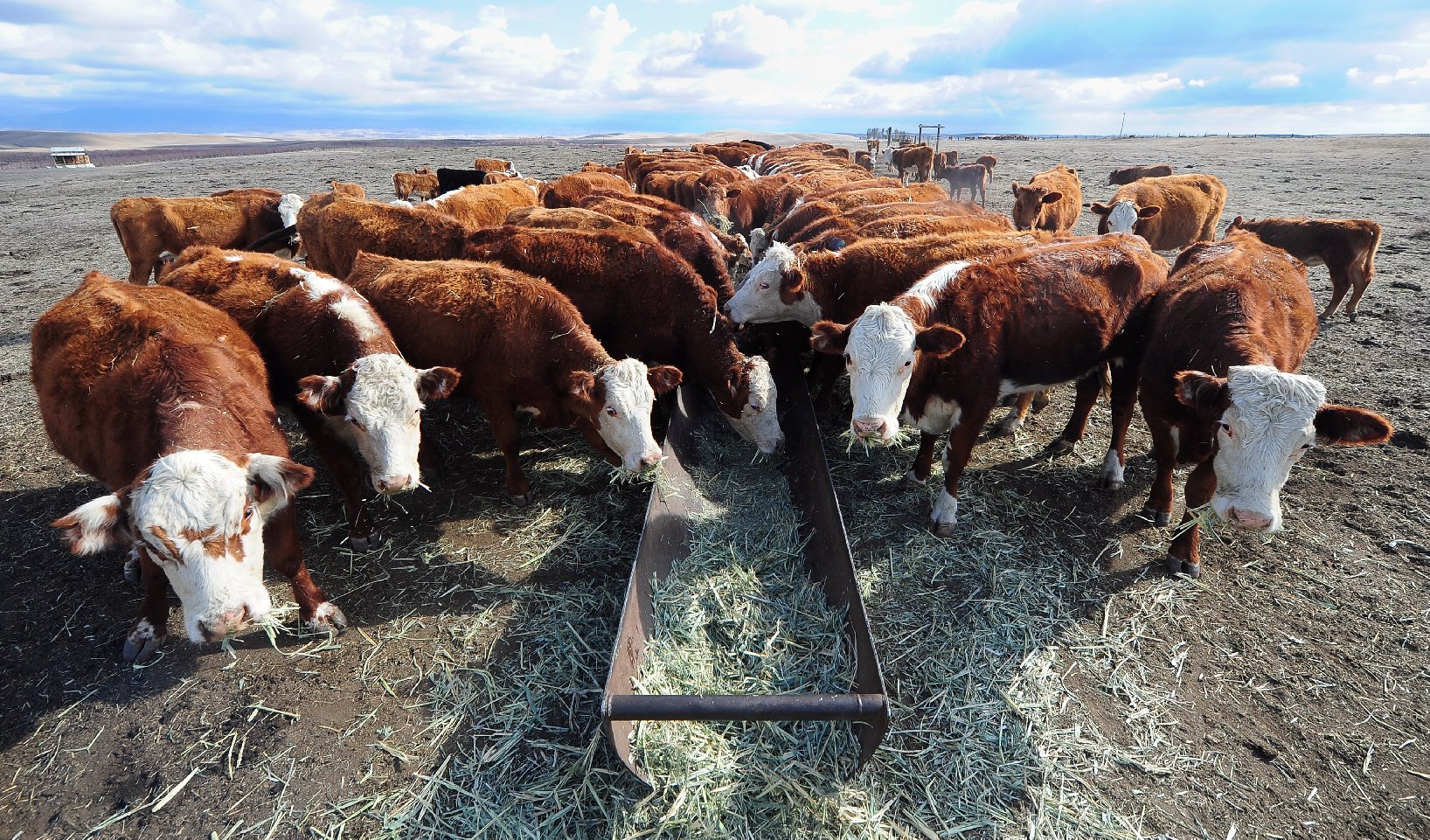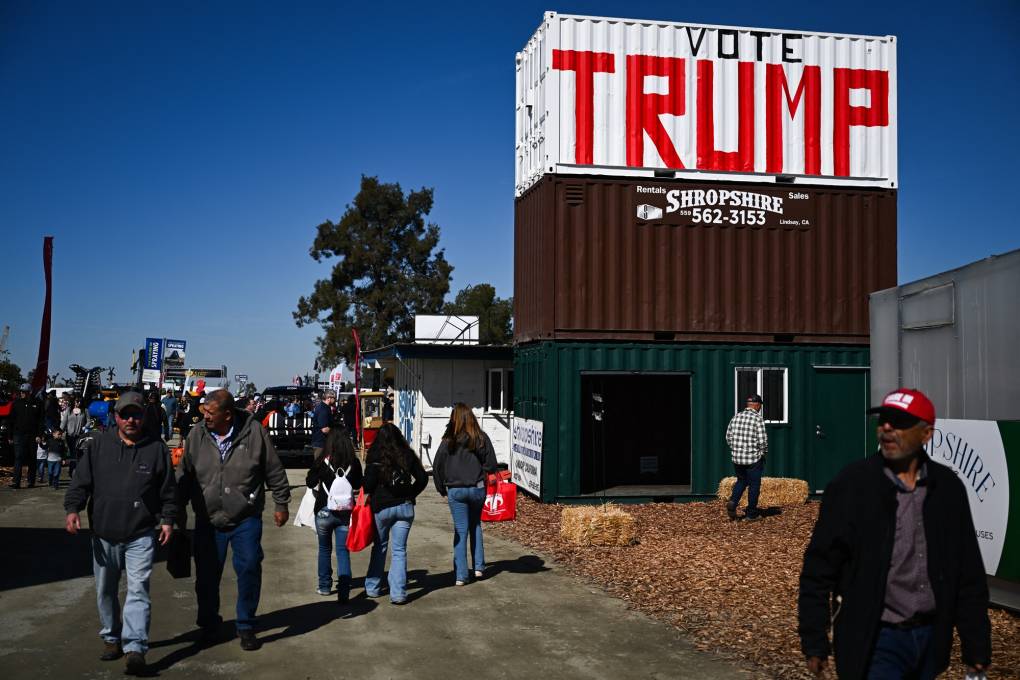“In the case of almonds, China pivoted towards Australia. Australia can produce almonds; they increased their production and they have 0% tariffs,” Carter said. “[China] started increasing its own production of walnuts instead of buying them from California. It was a growing market, [and] California had a big market share that would have continued to grow, but that was all ruined.”
In 2019, Trump awarded $16 billion in relief for affected farms. There was some rebound in the years between that trade war and the current one, but California never regained the dominance it once held.
Now, on top of a near halt on exports to China under its 125% levies, trade wars with California’s other primary export partner in Canada, threaten the same lasting impact.
“California agriculture ships fruits and vegetables, wine up to Canada, and that’s already impacted,” Carter said. Canada is the state’s number one importer.
Canada imposed a 25% retaliatory tariff on U.S. wine. Instead of looking to California, which sent 34% of its exported wine to the country in 2022, Canada is relying on Europe.
Even if the trade war ebbs, “they may not come back to California,” Carter told KQED. “Trading in agriculture is a relationship that develops over time. And if one trading partner breaks that relationship, it doesn’t snap back overnight. It takes a long time to regain that trust.”
Farmworkers ‘refusing to come out’
The industry’s workforce is also under significant threat.
Immigrants made up at least 50% of the state’s farmworker population between 2010 and 2018, according to data from the Public Policy Institute of California.
Those farmworkers are increasingly anxious and fearful, according to Belinda Hernandez-Arriaga, the executive director of Ayudando Latinos A Soñar (ALAS), an advocacy nonprofit for farmworkers in Half Moon Bay. Even though Trump’s threat of mass deportations has not yet been widely carried out, the emotional and psychological fear it’s caused is already having effects.
 Dr. Belinda Hernandez-Arriaga speaks during a roundtable discussion at the ALAS Sueño Center in Half Moon Bay on Jan. 23, 2024. (Beth LaBerge/KQED)
Dr. Belinda Hernandez-Arriaga speaks during a roundtable discussion at the ALAS Sueño Center in Half Moon Bay on Jan. 23, 2024. (Beth LaBerge/KQED)
“There’s a group of farmworkers … here on the North Coast and they have told our team that they’re refusing to come out beyond just their work duties,” Hernandez-Arriaga said. “They don’t want to leave the farm. They don’t want to come out for other things in the community because they don’t want to be at risk, and they’re scared.”
She said that in the days immediately after actions like the raids in Kern County, people have stayed home from work, worried that their farms would be targets for Immigration and Customs Enforcement officials, or that they could be stopped at a gas station on their way home.
While many immigrants were already fearful of ICE enforcement under the Biden administration, Hernandez-Arriaga said those she spoke to in Half Moon Bay didn’t feel like a target.
The current administration, she said, is “saying that they’re focusing on criminals, but that’s not what we’re seeing happening at all. In many ways, that’s what they’re using to market this increased deportation of immigrants.”
Farmers still on Trump’s side
Amid the threats both to agricultural workers and the industry’s economic stability, Padilla said he has been working with farmers and speaking with Republican colleagues about the impacts of Trump’s policies.
Blanket tariffs risk retaliation and could harm the farmers they try to protect, warned Shannon Douglass, president of the California Farm Bureau, which advocates for the state’s farmers and ranchers.
 California’s agricultural industry could be devastated by dwindling exports due to retaliatory tariffs and the effect of immigration enforcement on farmworkers. (Frederic J. Brown/AFP-Getty Images)
California’s agricultural industry could be devastated by dwindling exports due to retaliatory tariffs and the effect of immigration enforcement on farmworkers. (Frederic J. Brown/AFP-Getty Images)
“A more strategic approach is targeted enforcement, not blanket tariffs,” she said in a statement. “Strengthening and enforcing provisions of trade agreements like USMCA, expanding export markets and ensuring fair competition through diplomatic discussions would likely protect California farmers without triggering unnecessary retaliation.”
Still, Carter noted that Trump didn’t lose very much support from California farmers after his 2018–2019 trade war, and there hasn’t been a dramatic outpouring of opposition from them in recent months either.
“It is a mystery,” Carter said.
